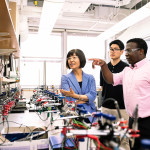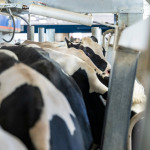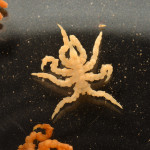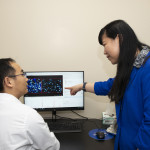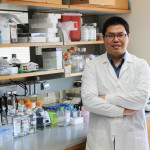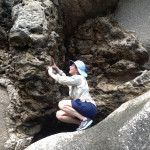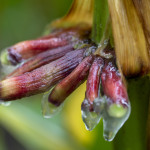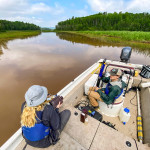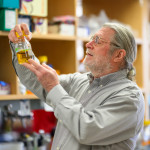Tag Research
New research reveals longevity gains slowing, life expectancy of 100 unlikely
A new study finds that life expectancy gains made by high-income countries in the first half of the 20th century have slowed significantly.
‘We are here’: New ad highlights national reach of Big Ten universities
A new TV ad by the Big Ten Conference celebrates the collective and collaborative impact of its members schools, including UW–Madison.
Recycling lithium from old electric vehicle batteries could be done cheaply with new electrochemical process
A group of UW–Madison chemists are hopeful they've found a solution, and they're already filing patents and courting global carmakers.
UW–Madison researchers expose how automation apps can spy — and how to detect it
A team of engineers and computer scientists has identified vulnerabilities in popular automation apps that can make it easy for an abuser to stalk individuals, track their cellphone activity or even control their devices.
Game changers: ‘Badger Inquiry on Sport’ breaks ground on the science of leadership
A a research partnership between the School of Education and UW Athletics is delivering insightful results for high-level players who want to work on the psychological aspects of their game.
Research project aims to measure brain fog as long-term effect of COVID-19
The findings of the study could inform the development of more targeted therapies to combat the effects of brain fog, which include memory loss, attention deficits and fatigue, that can make it hard to complete the tasks of daily life.
The Future of Health
Researchers across the College of Letters & Science are focused on critical topics that will change the way the world looks at medicine, health policy and personal wellness.
Meet the ‘weird’ sea spider that’s mapping the evolution of eight-legged creatures
UW–Madison researchers and their international colleagues have published the first high-quality genome of a sea spider species, providing a key reference point for the evolutionary traits of many related animals.
UW–Madison scientists are pushing the boundaries of mass spectrometry and molecular imaging
Their newest game-changing discovery has potential in areas like cancer research and pollution management.
Fossil corals point to possibly steeper sea level rise under a warming world
Newly uncovered evidence from fossil corals found on an island chain in the Indian Ocean suggests that sea levels could rise even more steeply in our warming world than previously thought.
Measuring gases around young stars, astronomers unlock major clues to planet formation
UW–Madison astronomers and international collaborators have produced the most accurate measurement of the gases swirling around young stars and their changing mass over time. The discovery offers clues to how different types of planets form.
UW innovations are helping farmers produce crops with less fertilizer. A pause in federal funds is threatening the research.
Thanks to federal support, UW researchers are engineering beneficial bacteria and breeding more-resilient crops with the aim to minimize farmers’ reliance on synthetic fertilizers, increase their cost savings and help protect the environment.
Protecting our Great Lakes
The University of Wisconsin Sea Grant Institute and Division of Extension’s Lake Superior National Estuarine Research Reserve are working to protect our Great Lakes
The real costs of research funding cuts
UW–Madison could lose tens of millions of dollars in annual research support due to a proposed change in federal funding. But what’s really at stake? The university’s ability to advance life-saving research and innovation.
UW biochemists engineered a poplar tree that produces a high-demand industrial chemical. It was a surprise discovery only made possible by sustained investment in research.
Professor Brian Fox has engineered a genetic alteration to poplar trees to help them produce an industrial chemical commonly used as a preservative and an ingredient for synthetic fibers.




